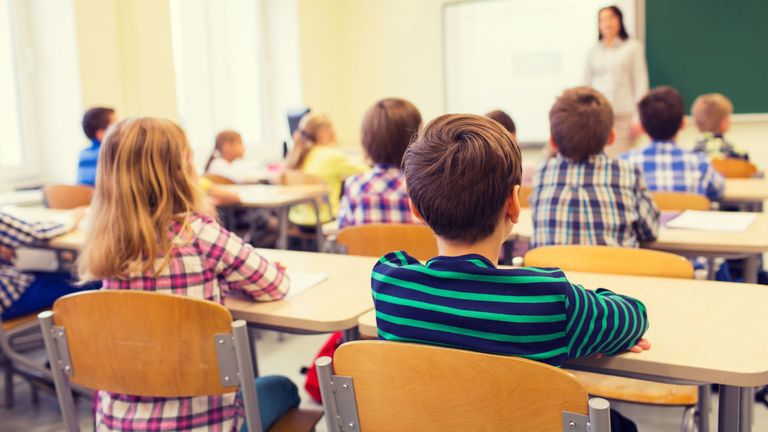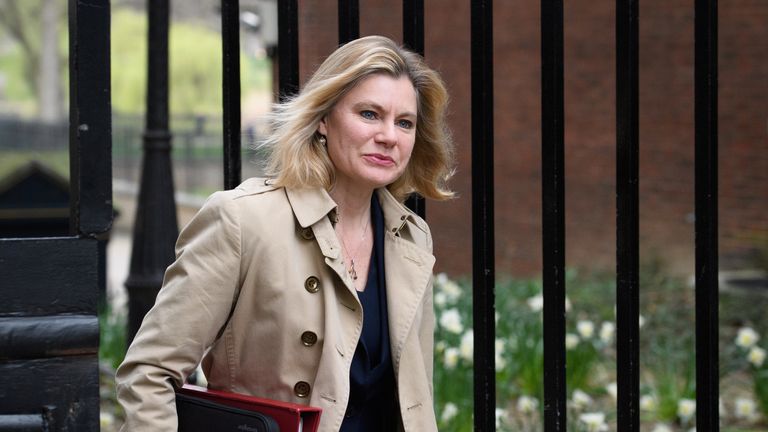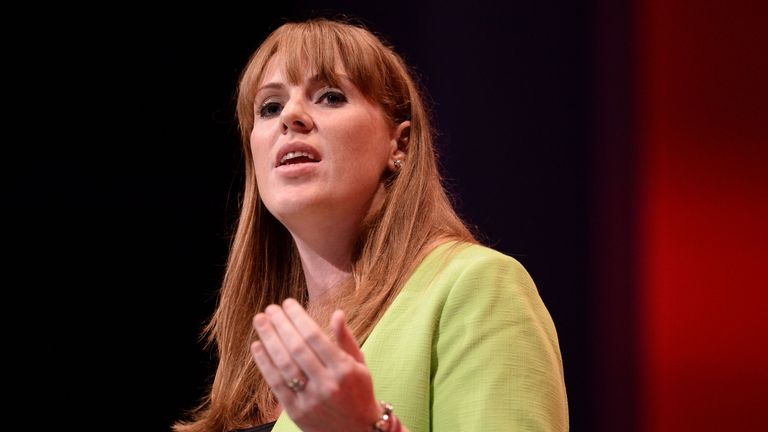Justine Greening hails 'historic' school funding reforms
The Government says money will go where it's needed most, but Labour says the reforms do "nothing to reverse" funding cuts.
Thursday 14 September 2017 20:03, UK
"Historic" reforms of education funding will see cash distributed according to the individual needs of each school, Justine Greening has confirmed.
The Education Secretary told the Commons the new "national funding formula" (NFF) was needed to address "historic inequities in funding that have existed for far too long".
She said: "It means for the first time the resources that the Government is investing in our schools will be distributed according to a formula based on the individual needs and characteristics of every school in the country.
"Not only will the National Funding Formula direct resources where they are most needed, helping to ensure that every child can get the high quality education that they deserve wherever they live, it will also provide that money through a transparent formula."
Labour's shadow education secretary Angela Rayner said the announcement did "nothing to reverse" cuts schools were already facing.
Ms Greening said the £1.3bn in extra funding that was announced in the summer meant overall budgets would rise by around £2.6bn in total from nearly £41bn in 2017/18 to around £42.4bn in 2018/19 and £43.5bn in 2019/20.
She told the Commons she was increasing the basic level of funding that schools would get for each pupil.
Under the new NFF the minimum per pupil funding level in 2019/20 would be at least £3,500 for primary school pupils and £4,800 for those at secondaries.
According to the Department for Education, the new funding settlement will mean a minimum cash increase of 1% per pupil by 2019/20, with the most underfunded schools getting increases of 3% per pupil in 2018/19 and 2019/20.
The department said there would also be a £110,000 lump sum for every school to help with fixed costs, as well as an extra £26m to rural and isolated schools to help them manage their unique challenges.
As well as the basic funding per pupil, schools will get extra cash for additional needs, such as deprivation and low prior attainment of pupils.
The proposals were first laid out in a consultation at the end of last year.
Geoff Barton, general secretary of the Association of School and College Leaders (ASCL), welcomed the new funding formula, and stressed it was "essential" schools were funded fairly.
"Setting minimum funding levels for schools is also a welcome move, but we need to examine whether the levels announced today by the Secretary of State are sufficient," he said.
"We fear they are still way too low to allow schools to deliver the quality of education they want to provide and which pupils need."
Ms Rayner said the funding formula would mean a "real terms cut" in schools budgets because of inflation, accusing Ms Greening of "simply cutting elsewhere to fill in the black hole that the Government itself has created".





